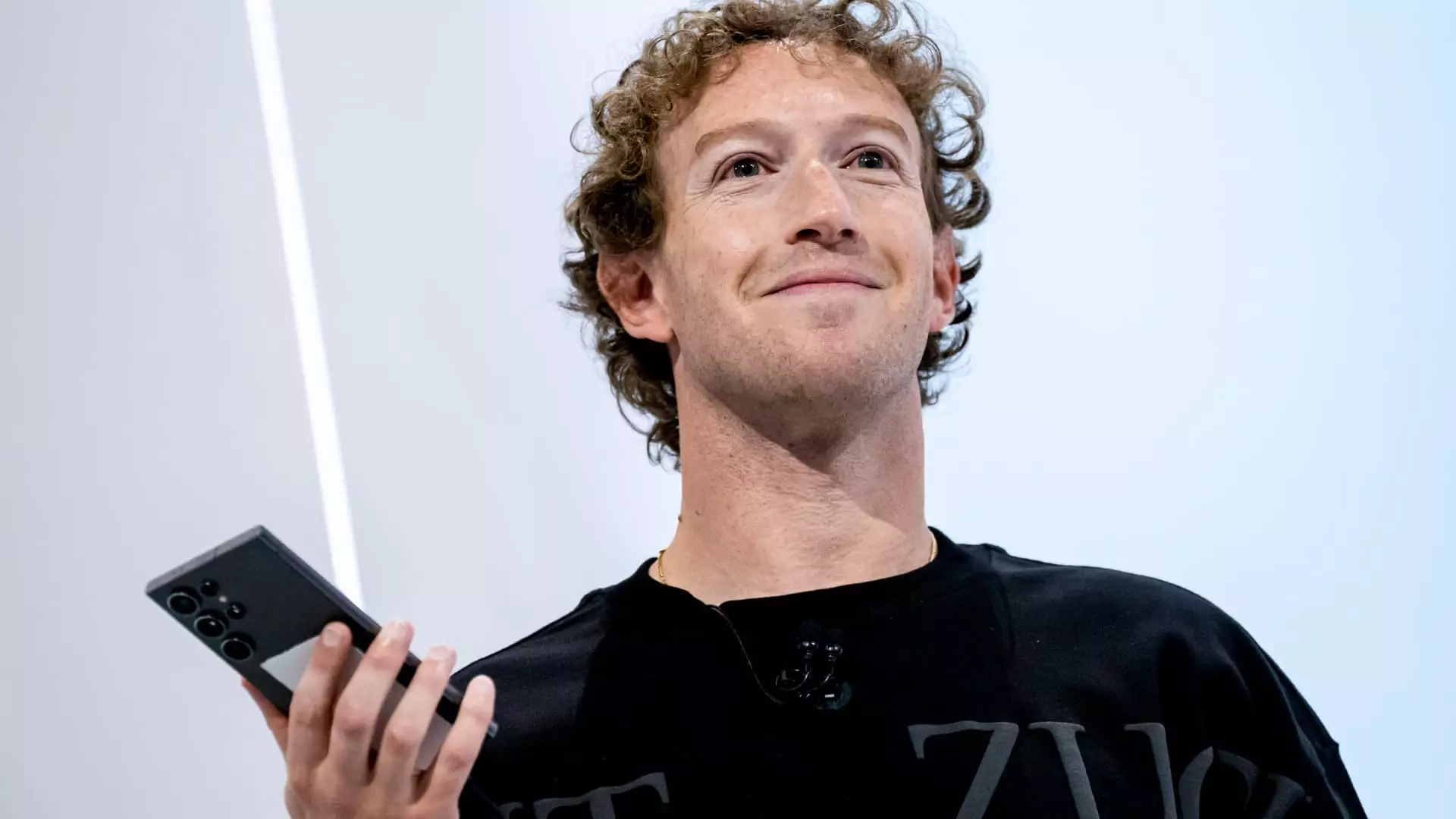In a provocative episode of the popular podcast “Joe Rogan Experience,” Meta’s CEO Mark Zuckerberg dissected the perceived stagnation of innovation at Apple, drawing attention to what he described as “random rules” within the tech giant’s operational framework. This candid dialogue not only reflects the competitive tension between two of the most powerful players in technology but also raises questions about the future of innovation in a rapidly evolving market.
At the outset of the conversation, Zuckerberg acknowledged the transformative impact of the iPhone, lauding its role in making smartphones ubiquitous. He noted that devices such as the iPhone have laid a fertile ground for groundbreaking advancements across various sectors. “On the one hand, [the iPhone has] been great, because now pretty much everyone in the world has a phone,” he remarked, emphasizing how this foundation has enabled “pretty amazing things.”
However, Zuckerberg quickly pivoted to critique Apple’s innovation trajectory. He pointed out that although the iPhone heralded a revolution in mobile technology, the company seems to have plateaued over the years. His implication was clear: while Apple initially set industry standards, it has now transitioned into a mode of conserving its past achievements rather than pushing the boundaries of technological innovation. This dichotomy serves as a focal point through which Zuckerberg advocates for a more dynamic approach in Silicon Valley—one that fosters relentless innovation instead of complacency.
One of the more striking points Zuckerberg made was centered around the lukewarm sales performance of the iPhone, inferring that users are now reluctant to upgrade their devices due to minimal improvements in new models. He suggested that Apple’s approach to profit maximization increasingly relies on squeezing revenue from existing customers, such as enforcing a substantial 30% commission on app developers. In essence, Zuckerberg painted a picture of a company that has shifted its emphasis from technological advancements to financial strategies aimed at extracting greater profit from its established customer base.
This criticism raises alarm bells about Apple’s long-term sustainability. If consumer engagement wanes as users hold onto their devices longer, the company risks stalling its revenue growth unless it reinvigorates its product lineup with truly innovative offerings that entice users to upgrade.
Zuckerberg was especially vocal regarding the restrictions Apple has placed on third-party developers looking to create products that integrate with the iPhone. He accused Apple of deliberately hampering the ecosystem that could facilitate the development of complementary technologies. By doing so, Zuckerberg asserted, Apple maintains a firm grip over its platform while limiting opportunities for others in the space.
He presented an argument that Apple’s defense of privacy and security doesn’t hold water given its current protocols. In his view, the lack of robust security architecture is used as an excuse to monopolize access to the iPhone’s ecosystem. “It’s insecure because you didn’t build any security into it,” he said, stripping back the veneer of Apple’s often-espoused principles regarding user safety.
Turning to Apple’s recent endeavors, Zuckerberg offered a tempered critique of Apple’s Vision Pro headset, which has reportedly struggled in the marketplace. While acknowledging the potential for innovative products to evolve over time, he expressed disappointment that the initial iteration fell short of expectations. “The V1, it definitely did not hit it out of the park,” he remarked, highlighting that successful technology often requires multiple iterations to reach its peak.
Zuckerberg’s criticisms of the Vision Pro are not merely an attack on a competitor but rather a broader commentary on the state of technological innovation itself. As he champions the Meta Quest, it raises questions about where the future of virtual and augmented reality will head amidst fierce competition.
Zuckerberg’s insightful critique of Apple’s current state of innovation provides a rare glimpse into the competitive mindset of tech titans. Both companies have the potential to redefine the future of technology; however, as Zuckerberg posits, that future may require a concerted effort to embrace risk and prioritize genuine innovation over profit-centric strategies. The tech landscape continues to evolve, and it will be fascinating to see how these discussions impact the industry in the coming years.


Leave a Reply